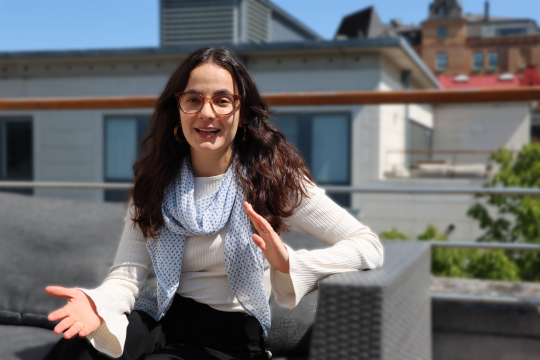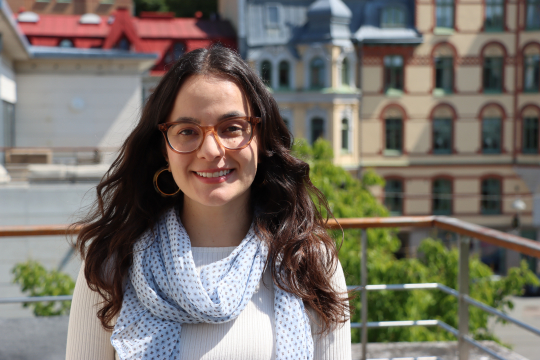Sandra Aguilar-Gomez has joined the Environment for Development network as its first gender research expert. In this conversation, she shares why integrating a gender lens is critical to effective economic and environmental policy—and how she plans to support researchers across the Global South.
Why does the EfD network need a gender specialist?
There are many reasons. A growing strand of scientific evidence shows climate change and environmental degradation affect men and women unequally. Women are also more likely to identify climate change and environmental degradation as pressing global concerns, and they are more likely to feel personal responsibility and to act accordingly. In addition, environmental policies can backfire if we’re not aware of gender issues.
Can you give an example of how policies can backfire without a gender lens?
Take conditional cash transfers (CCTs). These are often designed to empower women by providing financial support, conditional on things like sending kids to school or attending health checkups. But in a culture where women aren’t allowed to manage money independently, these programs can create conflict at home. We’ve seen cases where women were punished for participating in such programs. Without understanding gender norms, even well-meaning policies can backfire.
More generally, when we focus on aggregate measures like GDP or household incomes, we may end up increasing intra-household inequality. Policies at the intersection of environment and development, such as payments for ecosystem services and disaster relief, may also create undesirable distortions if gender is not taken into account.
What do you see as your most important contribution to the EfD network?
I want to make gender a natural part of how we think about economics and the environment. That means helping researchers ask better questions, integrate gender into their proposals, and reflect on how policies affect different groups. I’ll also conduct research in direct alliance with EfD’s collaborative programs and support the network through workshops, a help desk, and collaboration with the WinEED initiative.
What kind of support will you offer to other researchers?
Anything from reviewing proposals to discussing how gender roles may affect a study’s outcomes. I want the helpdesk to be a safe space—there are no stupid questions! Sometimes students or colleagues worry about saying the wrong thing, especially with sensitive topics. But that’s where dialogue matters. I’m not here to be a gender police; I’m here to support thoughtful, rigorous, and inclusive research.
You mentioned that women tend to care more about climate change. What’s behind that?
Surveys, including my own research in Colombia, show women are more likely to rank environmental issues as top global concerns, and they often feel a stronger personal responsibility. In many cases, women are more dependent on shared natural resources—like water and forests—for daily life. Empowering them through conservation programs or community management can have a dual benefit—environmental sustainability and gender equity. But we also need to find ways to involve men more, to build a culture of shared responsibility.
Are there gender issues where men are the losing party?
Yes, men are also shaped by rigid roles. They have lower life expectancy, fall behind in school in many regions in the world, and are more likely to be victims and perpetrators of violence. We’ve spent decades redefining what it means to be a modern woman—but what is a modern man? Part of solving women’s problems means addressing men’s challenges.
Are there areas of gender research that particularly interest you?
Right now, I’m especially focused on conservation economics and the role of women in natural resource management. But I’m also curious about sectors I haven’t studied yet—like the fashion and textile industry, which employs millions of women and children in tough conditions. There’s enormous potential for gender analysis across the entire value chain, from production to consumption.
How do you plan to collaborate with WinEED?
For starters, I’ll co-lead a workshop in Vietnam focused on leadership, research design, and data visualization. We want to build capacity, promote new research proposals, and create space for all voices. My goal is to help women in environmental economics grow as researchers and leaders.
Do you feel that there is a resistance towards including gender perspectives in research?
I would rather say that there has been a boom in gender research. The huge numbers of inequality make beautiful graphs, and straightforward data, and we certainly don’t know enough. My worry, though, is that it will be men in Cambridge who do the research that gets attention instead of women in India. The question is: who gets published, read, amplified?
By: Petra Hansson

